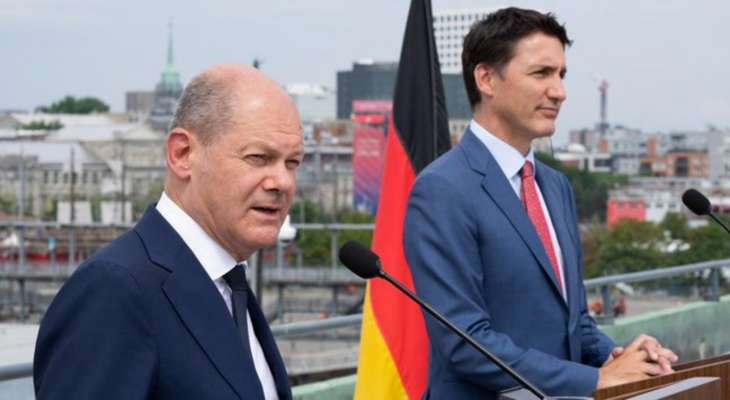Germany and Canada signed an agreement on cooperation in the field of production and transportation of hydrogen on the sidelines of the first visit of German Chancellor Olaf Scholz to Canada.
The agreement was signed by German Economy Minister Robert Habeck and Canadian Energy Minister Jonathan Wilkinson in the Canadian province of Newfoundland and Labrador in the presence of Schultz and Canadian Prime Minister Justin Trudeau.
And Schultz made it clear yesterday during an economic conference in the Canadian city of Toronto that “today our two countries can once again write technological and scientific history,” adding that “it’s about using hydrogen or producing ammonia from green electricity.”
During his speech to the Prime Minister of Canada, Schultz noted that “Canada has virtually unlimited potential to become a superpower in the field of renewable energy and sustainable production of raw materials”, adding that “Germany, for its part, is ready to become one of the closest partners.”
Newfoundland is considered a suitable location for the production of green hydrogen, a process that is carried out with the help of renewable energy sources. Sparsely populated Newfoundland has plenty of wind and a large area for electricity generation.
Hydrogen does not generate greenhouse gases, but its production requires the splitting of water into hydrogen and oxygen, which requires a lot of energy.
It is worth noting that the German Chancellor is on a visit to Canada, accompanied by his Deputy Economy Minister Robert Habek and a high-level business delegation.
Source: El Nashra
